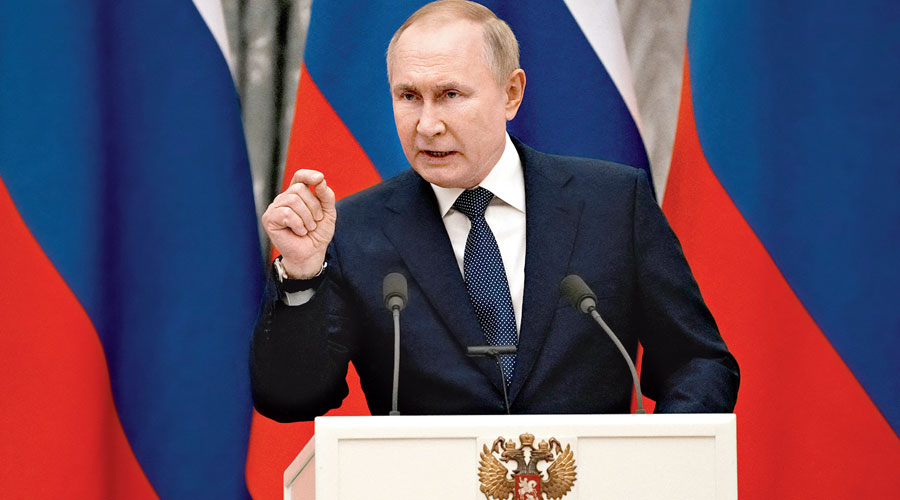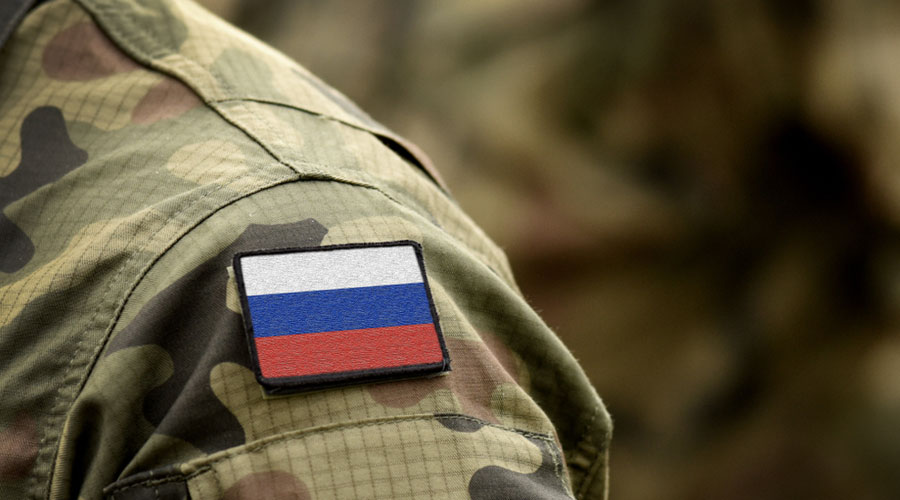Anniversary celebrations of the Soviet Union's victory over Nazi Germany begins on Monday as Russian forces fight Ukrainians in one of the deadliest European conflicts since the end of World War II 77 years ago.
President Vladimir Putin, Russia's paramount leader since 1999, has in recent years used Victory Day to needle the West from a tribune in Red Square before a parade of troops, tanks, rockets and intercontinental ballistic missiles.
A fly-past over the nine domes of St Basil's Cathedral will include supersonic fighters, strategic bombers and, for the first time since 2010, the Il-80“doomsday” command plane, which would carry Russia's top brass in the event of a nuclear war.
Putin has repeatedly likened the war in Ukraine - which he casts as a battle against dangerous“Nazi”-inspired nationalists in Ukraine - to the challenge the Soviet Union faced when Adolf Hitler invaded in 1941.
"Our common duty is to prevent the renaissance of Nazism which has brought so much suffering to people of different countries,” Putin said in a message to the peoples of 12 former Soviet republics including Ukraine and Georgia.
Ukraine and its allies reject the accusation of Nazism in Ukraine and that Russia is fighting for survival against a aggressive West, saying the Kremlin leader unleashed an unprovoked war in an attempt to rebuild the Soviet Union.
Putin, who has repeatedly expressed resentment over the way the West treated Russia after the 1991 fall of the Soviet Union, says Ukraine has been used by the United States to threaten Russia.
U.S. President Joe Biden has cast Putin's invasion of Ukraine as a fight in a much broader global battle between democracy and autocracy and has repeatedly called Putin a war criminal. In a speech in Warsaw in March Biden said the former KGB spy cannot remain in power.
Russia denies Ukrainian and Western accusations that its forces have committed war crimes since the Feb. 24 invasion.
Victory Day
The Soviet Union lost 27 million people in World War Two, including many millions in Ukraine, but eventually pushed Nazi forces back to Berlin where Hitler committed suicide and the red Soviet Victory Banner was raised over the Reichstag in 1945.
Beside the 1812 defeat of French Emperor Napoleon Bonaparte, the defeat of Nazi Germany is the Russians' most revered military triumph, though both catastrophic invasions from the west left Russia deeply sensitive about its Western borders.
Victory Day is an almost sacred holiday for Russians as most Soviet families mourned losses. For Russians, the collective memory of the war is one of the few uncontentious events in a tumultuous history riven by contention.
Though Putin has tried to arrest the decline of Russia's once mighty armed forces, the conflict in Ukraine has illustrated weaknesses in the country's military. Losses are not publicly reported but Ukraine says Russian losses are worse than the 15,000 Soviets killed in the Soviet-Afghan war of 1979-1989.












